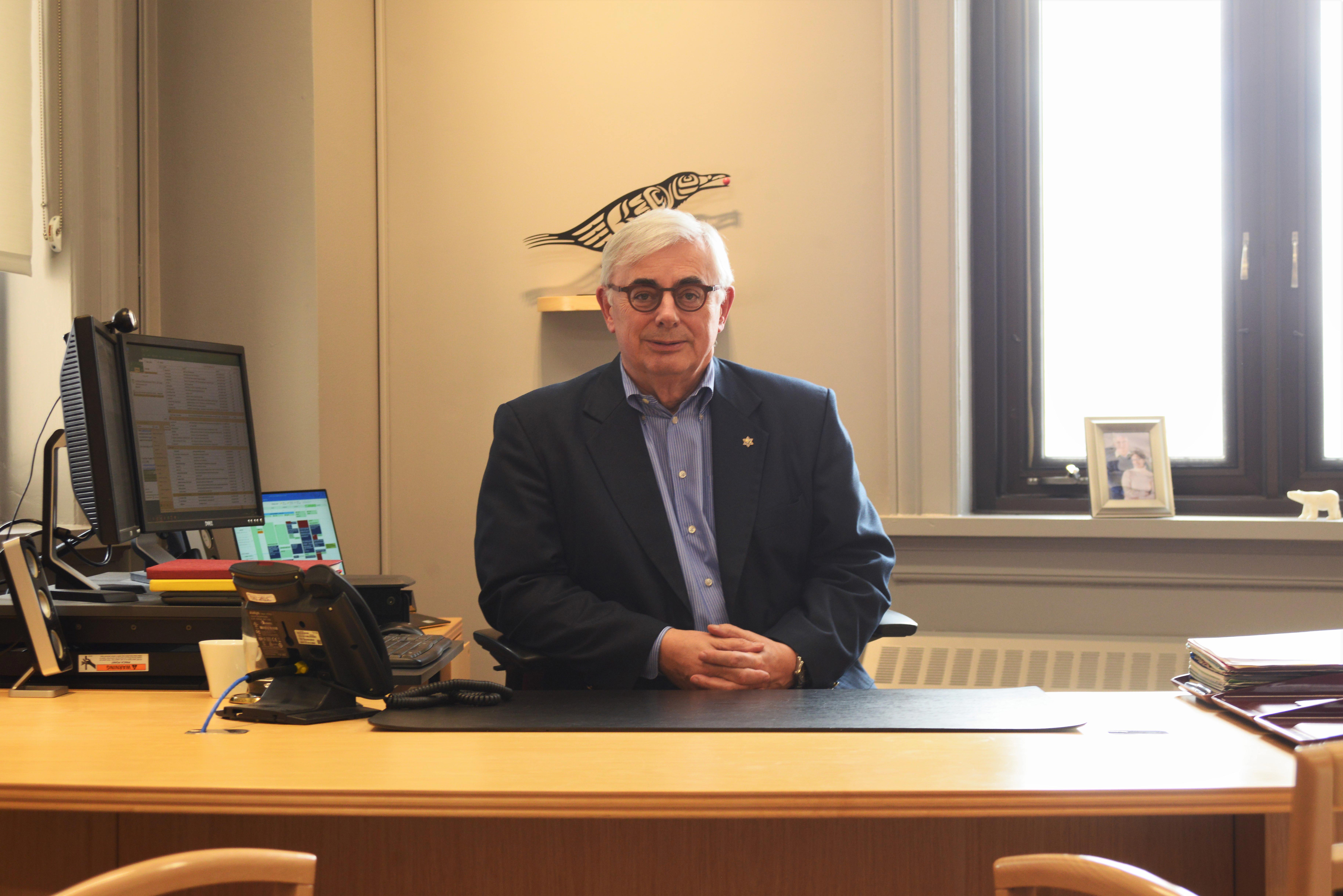As we all stay home and reflect on the disruption caused by COVID-19, students might have missed an announcement from the U of M: David Barnard is leaving the university after serving as the president and vice-chancellor for 12 years.
I must start by saying that I do not know Barnard on a personal level. However, I had the opportunity to work with him on a professional level while I served as a senator for the faculty of environment, earth and resources and later as UMSU’s vice-president (external).
I have now completed my second year of law school at the University of British Columbia and although I haven’t spoken to him in four years, I still follow some of the news that comes out of the U of M.
There is no doubt that Barnard has been a controversial figure.
Along with hundreds of students, I mercilessly criticized him for his budget cuts and fee hikes in 2015-16. I remember barging into the board of governors meeting to protest against his administration’s failure to prevent budget cuts at the university.
In 2016, I fully supported professors who went on a strike to challenge the administration’s attack on academic freedom. To put it mildly, Barnard’s handling of the strike was disappointing.
I never thought I would say this, but I eventually grew to like him.
Despite my strong opposition to some of his decisions, I developed a deep sense of respect and admiration for Barnard’s contributions to the U of M.
My admiration comes not because Barnard is perfect, but because he tried relentlessly to set the foundation to transform the university.
In the past five years, Barnard and his vice-president (external), John Kearsey, have worked tirelessly to raise money for the U of M’s Front and Centre campaign.
Under Barnard’s leadership, the U of M raised more than a jaw-dropping $626 million, making the Front and Centre campaign Barnard’s most enduring legacy, as despite opposition from some students and faculty, Barnard continued with his push to raise money.
Through this effort, the U of M will finally be able to build critical infrastructure and repair some old facilities that need desperate improvements. It will also create scholarships and bursaries for hundreds of students.
Most importantly, the university has created 21 research chairs and professorships. To those not in academia, research chairs and professorships might not mean much. However, for graduate and professional students, this opens countless research opportunities.
As an environmental science graduate, I would have loved to see Barnard do a lot more to promote environmental sustainability, and to his credit, under Barnard’s leadership, the university established the office of sustainability. In fact, the U of M made remarkable progress in terms of reducing water and energy consumption.
The university also significantly expanded environmental research under his leadership. However, he will also be remembered as the person who failed to adopt the fossil fuel divestment campaign unlike other campuses, such as UBC.
I understand the unique political pressure the administration faces, but, nevertheless, no university administrator in the country should be allowed to duck the issues surrounding climate change.
As an ally of Indigenous students, I have also seen the U of M make significant progress toward reconciliation with Indigenous peoples. The U of M has a long way to go, but the campus is a much better place for Indigenous students because of Barnard.
Barnard was the first president to apologize to Indigenous peoples for the university’s failure to challenge the residential school system. The truth and reconciliation commission applauded his unconditional apology to Indigenous students and faculty. He walked the walk by making more funds available for scholarships and bursaries for Indigenous students and by expanding his executive team by creating the first-ever vice-president (Indigenous) position at the U of M.
Although the U of M continues to have a serious problem with racial discrimination toward Indigenous students, under Barnard’s leadership, the university has taken the first few steps toward decolonizing the education system.
For international students like myself, we likely won’t remember him for the money he raised, but rather for the care and respect he showed to foreign students. He stood shoulder to shoulder with international students during candlelight vigils when tragedies struck home and he always made a point to speak about the contributions made by foreign students that make the university a better place for learning.
It’s no wonder international students waited for their opportunity to attend the reception for graduating students at Barnard’s house each year. For many international students, going to his residence may have been the biggest highlight of their student experience in Canada.
Whether you like Barnard or not, he has left a strong legacy.
He has successfully expanded the childcare facility, established a sexual violence resource centre, created hundreds of scholarships for students, given students a fall reading week and generated hundreds of millions of dollars for capital projects.
The outgoing U of M president will be remembered as a person who tried to make a difference.
He will also be remembered as the person who had the most boring tweets in the entire world. If you are reading this article, David Barnard, please hire someone in their 20s who knows the Twitter game or delete your account as you enjoy the next phase of your life.
Tweets aside, I wish him the best in his future endeavours.


